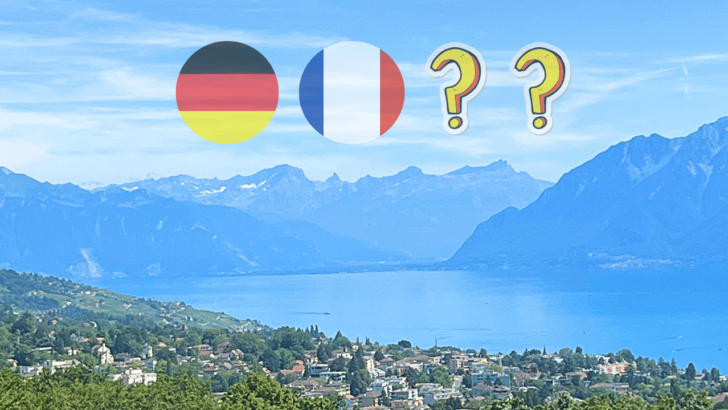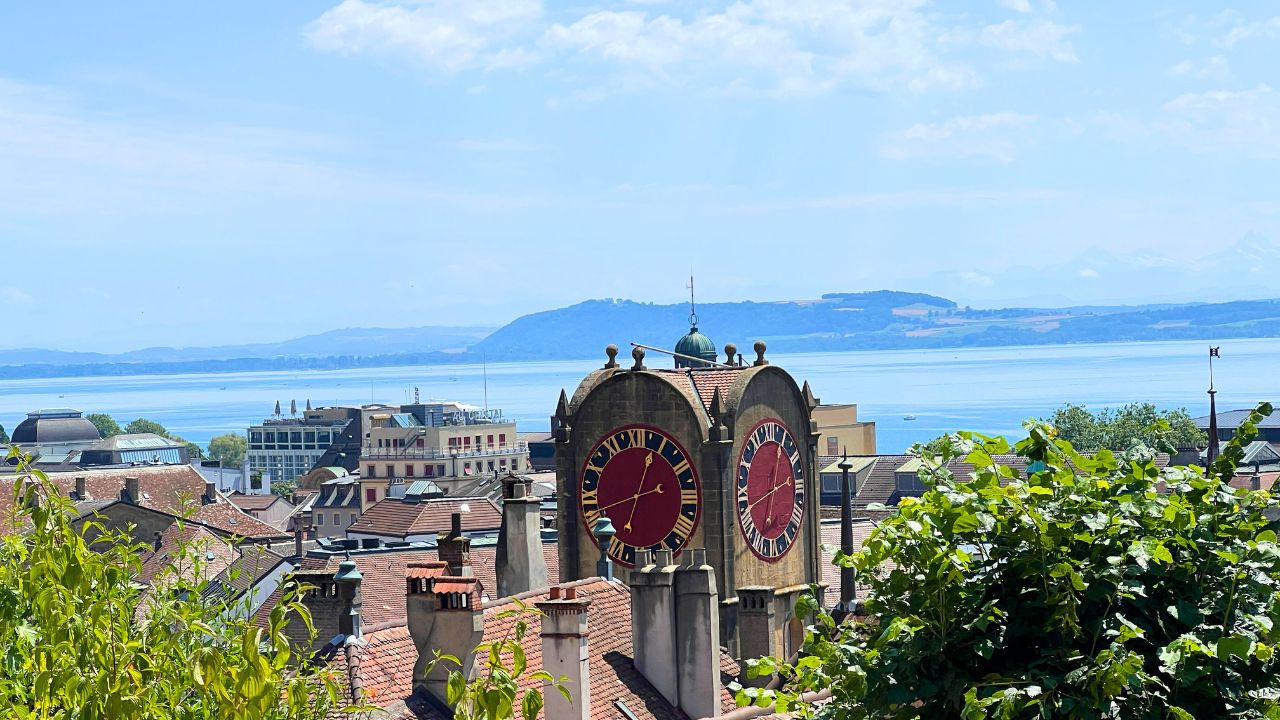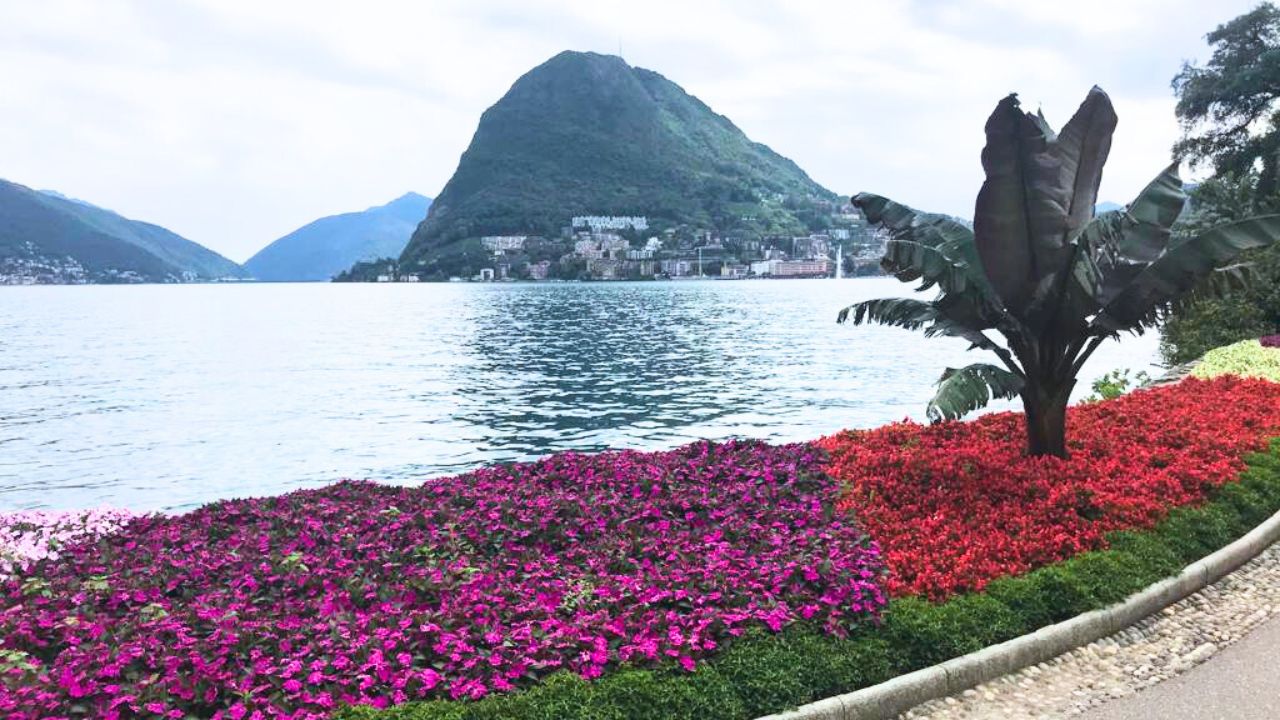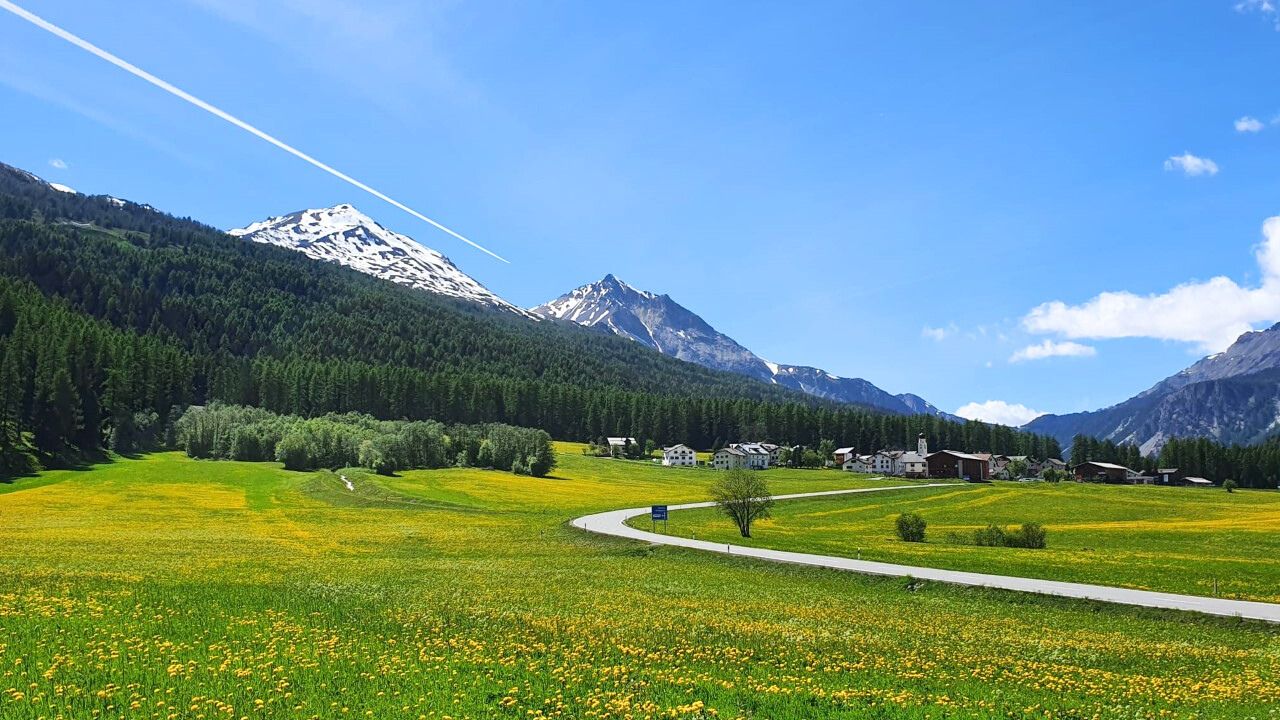Have you ever dreamed of being in Switzerland, breathing in the crisp alpine air and gazing at the picturesque landscapes?
One of the most fascinating parts about this dream could be the whirlwind of languages swirling around you.
That’s right, Switzerland has more than one official language.
Curious?
Let’s jump on in!
What language is spoken in Switzerland?
People in Switzerland speak German, French, Italian, and Romansh, which are the four official languages. The majority of Swiss residents speak German (around 62%). French is spoken by about 23%, Italian by about 8%, and Romansh by less than 1% of the population.
Official Languages in Switzerland: More than Just a Single Tongue
[table id=72 /]Source: admin.ch
German: A Majority Voice in Switzerland
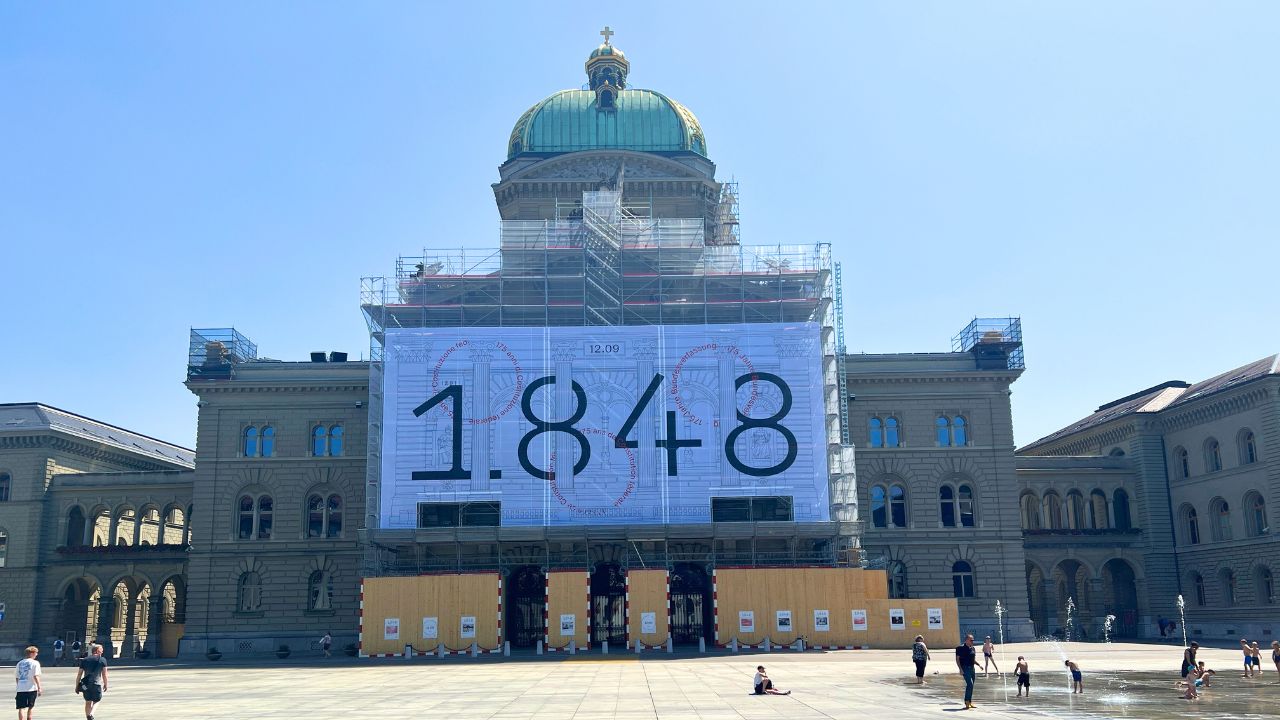
The Parliament Building in Bern, Switzerland. Here as well, of course, all the 4 official languages of Switzerland, namely German, French, Italian and Romansh are respected and well represented.
As you step into Switzerland, you’ll find that the majority of Swiss people, about 63%, speak German.
This region is often referred to as the ‘German-speaking Switzerland’ or ‘Deutschschweiz’.
But don’t be surprised if the German spoken here sounds different.
It’s actually Swiss German, or ‘Schweizerdeutsch’, a collection of Alemannic dialects which is quite distinct from standard German.
Swiss German differs notably from Standard German in terms of pronunciation, grammar, and a whole lot of vocabulary.
Even Germans might have a hard time understanding it!
Here’s a comparison table showcasing some differences between Bernese German, Zurich Swiss German, and Standard German in terms of spelling.
[table id=73 /]These dialects belong to the family of Alemannic dialects, which also includes dialects spoken in parts of Germany, Austria, and Liechtenstein.
Bernese German and Zurich Swiss German, however, have their own unique characteristics and pronunciation rules.
It’s also important to note that the Swiss are taught Standard German in school. Both in school and at work, the language of choice is Standard German.
So, while they speak their regional dialects in day-to-day life, they can easily switch to Standard German in formal situations or when communicating with Germans.
Truly, a testament to the linguistic versatility of the Swiss!
Another thing that needs to be noted is that there are basically no official spelling rules in Switzerland as far as Swiss-German is concerned.
When people in Switzerland text each other, they usually use Swiss-German. But it’s not too important to spell every word perfectly, because there are no official rules.
For instance, in Bernese, for the word “Bread”, you could either write “Broot” as outlined in the table above or you could simply write “Brot” with just one “o” instead. Both are correct and nobody would really care.
“Broot” would be closer to how people from Bern really pronounce the word “Bread,” though.
But that doesn’t necessarily mean that we would also write it like that in a text message or so.
Key cities that predominantly speak German (=Swiss German) in Switzerland are:
- Zurich
- Bern
- Basel
- Lucerne
And, please, let’s clear this up: Bern, not Zurich, is the capital of Switzerland. However, German is the main language spoken in both cities.
French: The Language of Romance in Switzerland
Turn your attention to the west of Switzerland, and you’ll find a region where about 23% of the Swiss population converse in French, the language of love.
In this ‘Romandy’ region, you’ll hear Swiss French, a variety of French with a few unique features.
It’s like getting a slice of France right in Switzerland!
Key Cities that predominantly speak French in Switzerland are:
- Geneva
- Lausanne
- Neuchâtel
I am personally living in the city of Biel, which is about one hour away from Geneva.
Biel is one of only a few truly bilingual cities in Switzerland.
What makes Biel really unique is the fact that about 50% of the people here speak French while the other 50% speak German.
In other bilingual cities in Switzerland, the distribution is usually either heavily in favor of French or German but never fifty-fifty.
Italian: A Southern Tongue
Italian is the main language of the canton of Ticino, a charming area nestled in the southern part of Switzerland.
Ticino shares a border with Italy, so you can imagine that Italian culture and language are strong influences here.
Over 350,000 people in Switzerland speak Italian, and it’s not just limited to Ticino.
Some regions of the Graubünden canton also have a significant number of Italian speakers.
As a result, Italian has a solid presence in Switzerland’s linguistic mosaic.
Like with Swiss German and Swiss French, Swiss Italian also has its peculiarities.
It closely resembles the standard Italian used in Italy, but you can notice some variations in vocabulary, thanks to the influence of French, German, and Romansh.
For example, in Swiss Italian, you might hear “scuola media” used for ‘middle school’, whereas in Italy, it’s more common to say “scuola secondaria di primo grado”.
Similarly, the Swiss-Italian “billette” for ‘ticket’ leans more towards French than the Italian “biglietto”.
Here are a few more examples illustrating the differences between Standard Italian and Swiss Italian:
[table id=81 /]Italian in Switzerland is not just a matter of language.
It’s also a vibrant connection to a rich cultural heritage of arts, food, and the Italian love for la vita bella – the beautiful life.
This blend of language and culture contributes significantly to Switzerland’s diverse identity.
[table id=74 /]So if you find yourself in Ticino one day, don’t forget to greet the locals with a friendly “Ciao” or “Buongiorno”. It will definitely put a smile on their faces!
Romansh: A Living Legacy
Now, let’s talk about a language that often remains hidden in the shadow of the others – Romansh.
It’s spoken by less than 1% of the Swiss population and mostly confined to the canton of Grisons in eastern Switzerland.
Despite its limited presence, Romansh holds an important place as one of Switzerland’s official languages, representing the rich linguistic diversity of the nation.
Curious about how Romansh looks and sounds like? We have prepared a brief list of common phrases and words in Romansh with their English translations.
Take a look and get a taste of this interesting language:
[table id=80 /]Romansh is a unique language with Latin roots, but it has also absorbed many German influences because of where it’s spoken. The result is a special mix of Romance and Germanic elements.
Beyond the Big Four: Other Languages Echoing Across Switzerland
Switzerland, famed for its linguistic diversity, extends its polyglot palette far beyond its four official languages.
A confluence of global migration and international relations has led to a noticeable presence of non-official languages within the country’s borders.
Here’s an overview of some of the more widely spoken non-official languages in Switzerland:
[table id=79 /]Source: Federal Statistical Office of Switzerland
By now, you should know the ins and outs of all the languages spoken in Switzerland!
But are you actually aware of the languages spoken in Brazil?
If not, this could make for another interesting read!
Frequently asked questions on “What languages do Swiss people speak”?
Why does Switzerland have four official languages?
Switzerland’s four official languages reflect its cultural diversity and federal structure. The Swiss constitution recognizes German, French, Italian, and Romansh to respect linguistic minorities and ensure balanced representation.
Is English widely spoken in Switzerland?
English is widely spoken in Switzerland, especially in urban areas and among the younger generation. It is also taught in schools, further enhancing its popularity.
Do all Swiss people speak all four languages?
Not all Swiss people speak all four official languages. Most Swiss people are bilingual or trilingual, but they typically learn and use the language(s) most relevant to their region and needs.
What is the most spoken language in Switzerland?
The most spoken language in Switzerland is German, with about 63% of the population using it as their primary language.
What language do people speak in Zurich?
The city of Zurich belongs to the Swiss-german part of Switzerland. With that said, most people in Zurich speak German, namely Swiss-German.
What language do people speak in Geneva, Switzerland?
In Geneva, Switzerland, the most spoken language is French, as it’s part of the French-speaking region known as Romandy. However, due to international organizations and expats, English and other languages are also commonly spoken.

Hey fellow Linguaholics! It’s me, Marcel. I am the proud owner of linguaholic.com. Languages have always been my passion and I have studied Linguistics, Computational Linguistics and Sinology at the University of Zurich. It is my utmost pleasure to share with all of you guys what I know about languages and linguistics in general.

